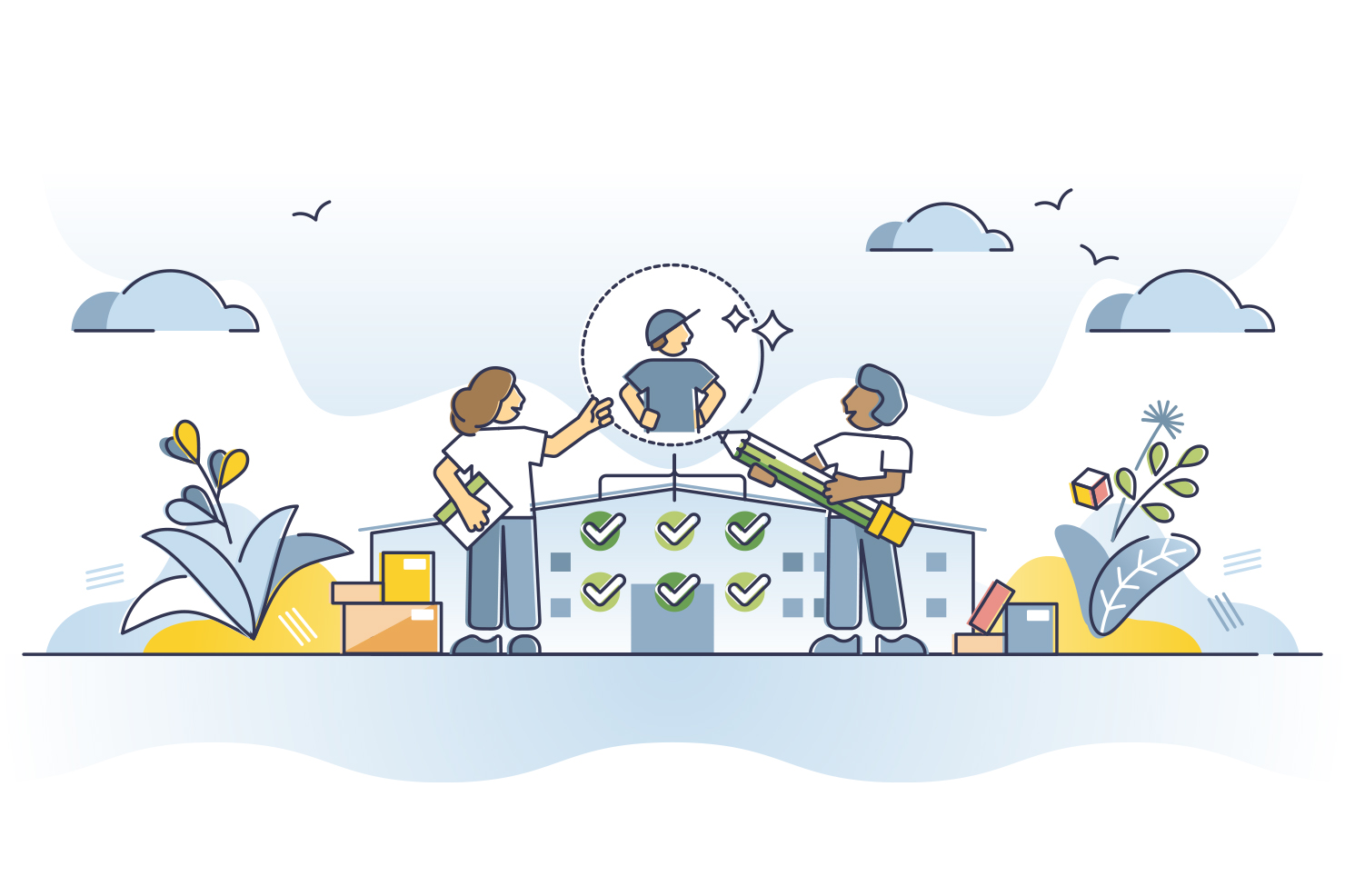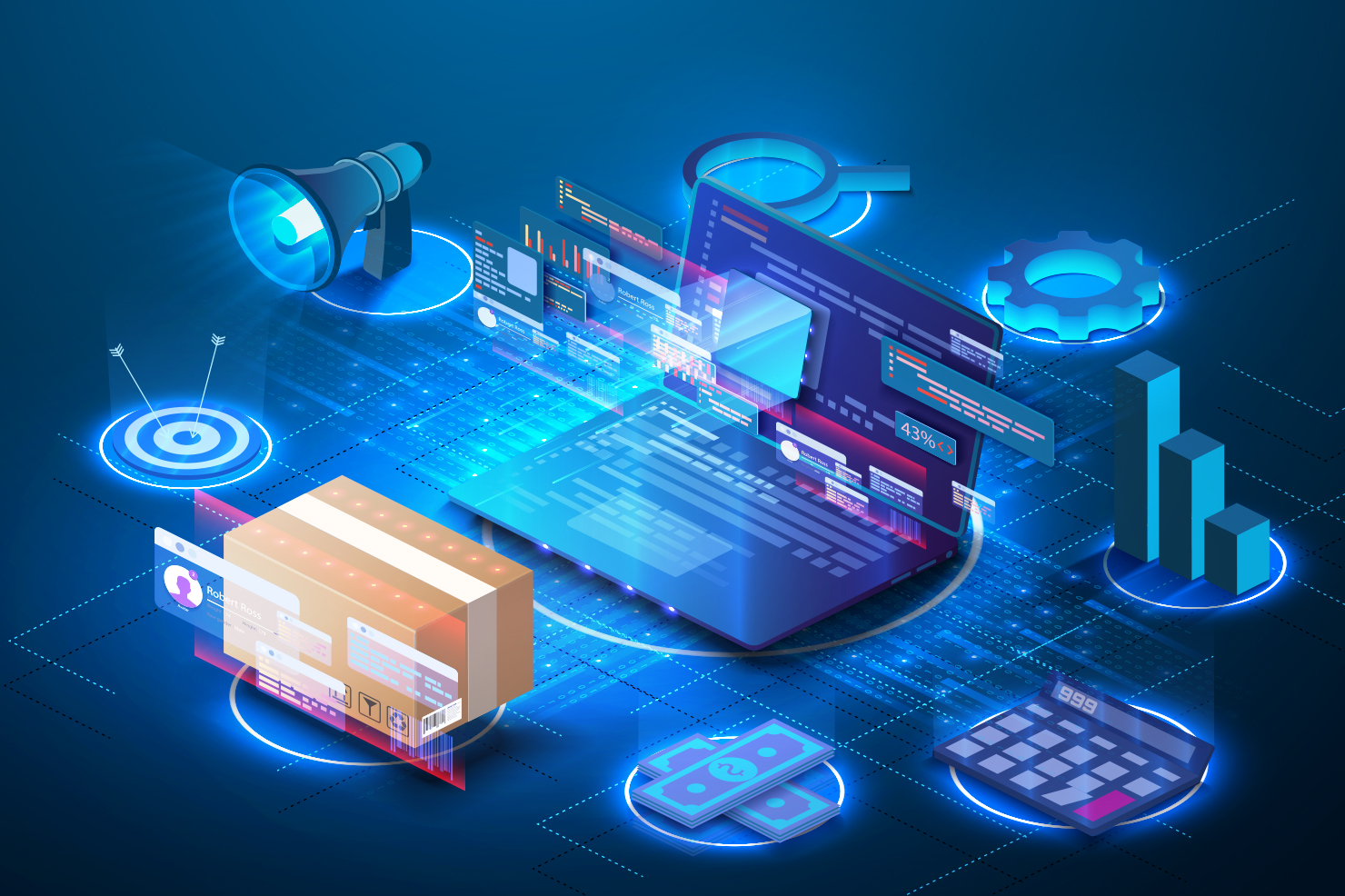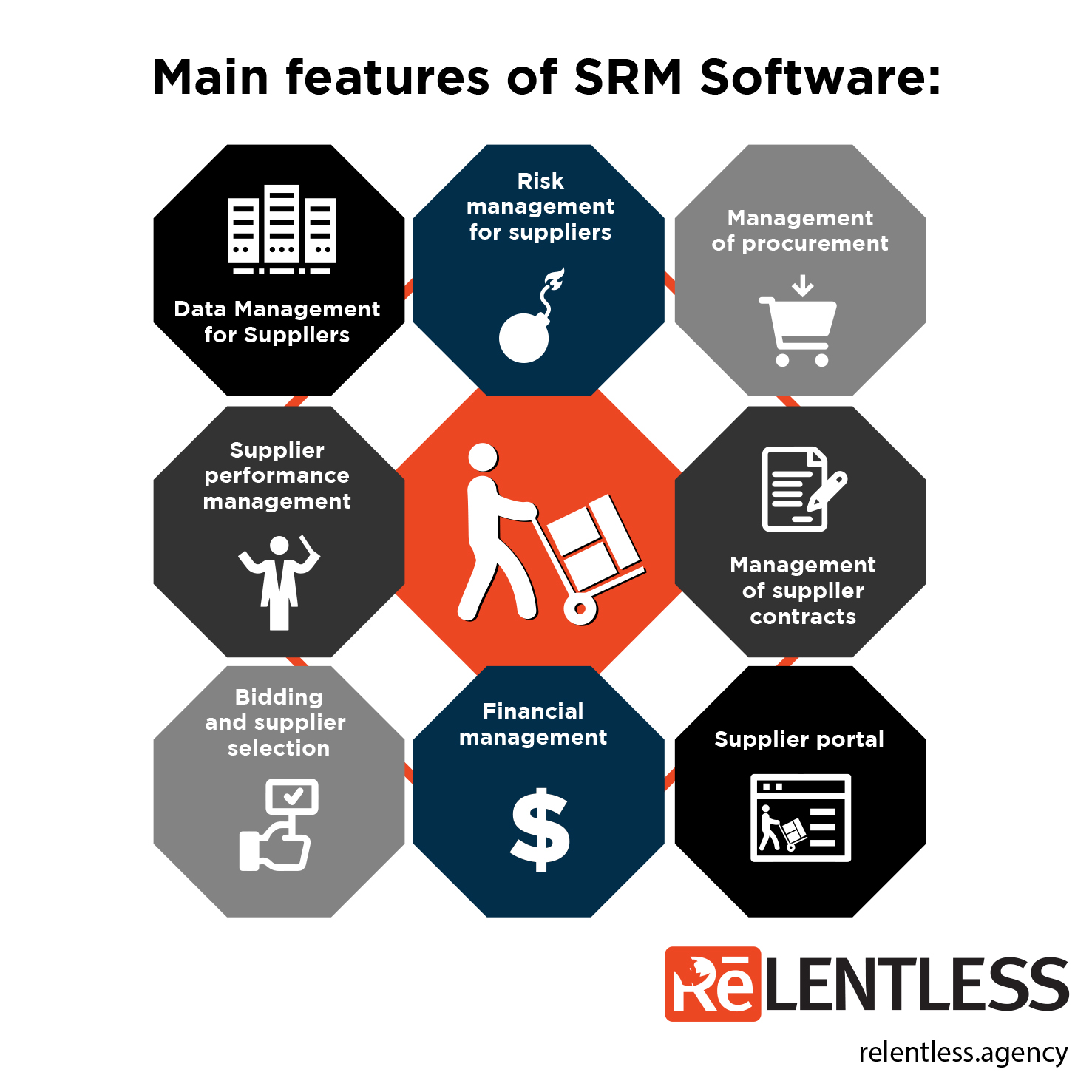The Supplier Relationship Management (SRM) software assists in determining the value that each supplier provides and which is essential to business performance. It also helps managers to develop better relationships with suppliers. Supply chain professionals who work directly with suppliers in procurement, project management, and operations use Supplier Relationship Management (SRM).
Suppliers are an essential part of supply chain management. With the systematic approach of Supplier Relationship Management (SRM), an assessment of vendors who provide goods and services to a company determines their contribution. It develops a strategy to boost its performance.
What is SRM Software?

A Supplier Relationship Management (SRM) software centralizes supplier-related data, assists in updating the appropriate suppliers, evaluates their performance and identifies related risks to improve supply collaboration, planning, and management.
In other words, Supplier Relationship Management (SRM) is one of many supply chain management disciplines. There are similarities and differences between vendor management and procurement processes. Vendor management is generally concerned with establishing costs and service-level agreements between the company and its vendors, whereas procurement is concerned with the actual purchase.
There are two critical pillars to recognize when discussing the importance of the SRM system in the supply chain. First, it is vital to determine whether the suppliers are meeting the company’s needs during supplier onboarding activities. This data is beneficial for differentiating suppliers, assessing risks and opportunities, and category management. Secondly, identify areas for improvement while engaging with suppliers throughout their lifecycle, also known as supplier strategy development. It helps develop an optimal way to interact with the supplier base and recognizes that the optimal solution for one supplier may not be the same as the optimal solution for another. These two factors demonstrate the importance of an SRM system for businesses and corporations.
Working closely with suppliers and generating quick solutions is more straightforward with constant evaluation, communication, and feedback.
Supplier Relationship Management (SRM) software helps companies manage their relationships with buyers, suppliers, and service contractors using digital tools. Since tracking suppliers’ expenses and contracts are the primary roles of SRM software, these software applications evolved from earlier accounting applications.
The SRM activities are a subset of the company’s vertical product chain, from obtaining raw materials to supplying finished goods to the retailer’s shelves.
While discussing what the SRM software does, we should also get to know its features and tools that companies can use to improve performance.
Main features of SRM Software
SRM software is no longer a new concept due to its unique functionality for meeting clients’ goals of companies that use SRM.

The following is a list of features that clients of companies that use SRM frequently request:

- Data Management for Suppliers
- Risk management for suppliers
- Management of procurement
- Supplier performance management
- Management of supplier contracts
- Bidding and supplier selection
- Financial management
- Supplier portal
The features of SRM software listed above are more than adequate for managing the entire supplier base chain and meeting the company’s objectives.
Companies benefits from SRM software system
Supplier Relationship Management (SRM) software does more than just monitor the supplier base. There are numerous advantages to pursuing SRM software best practices and strategies for your company.
Keep reading to find out some of the essential benefits of the SRM software system.
- Compliance with relevant parameters
To function correctly, each supplier in the organization must meet a set of criteria. These parameters can be analyzed using SRM software to evaluate the supplier’s performance. This way, you can determine whether or not your company is getting the most value from the supplier.
- Growing supplier base management
A variety of factors, such as increased operation scale, broad access to global suppliers, improved supply chain complexity, and so on, all contribute to a growing supplier base. SRM software provides a 360-degree view of the entire supplier database for better outcomes.
- Supplier development programs
Supplier relationship management software can assist in designing various development programs to support the suppliers after evaluating them and identifying areas for improvement. These programs address company needs and requirements and can play a crucial role in meeting long-term requirements.
- Quality control and cost-saving
A vital SRM process in the company results in the timely identification of cost-saving opportunities and the scrutiny of supplier control quality. This process directly impacts the company’s quality and cost factors and its bottom line.
- Self-service for suppliers
Among all of the advantages mentioned above, the most significant benefit of SRM software is that it empowers suppliers to monitor their data. They can create their profiles using a collaborative platform, identify and evaluate new supplier partners, track payments, and update order details.
There are numerous options for Supplier Relationship Management (SRM) software to ensure that all information about current and potential suppliers is systematically stored. Furthermore, these tools help manage the sales pipeline and revenue streams. SRM software also helps with supplier responsiveness and long-term visibility. All of these advantages directly contribute to the company’s growth.
